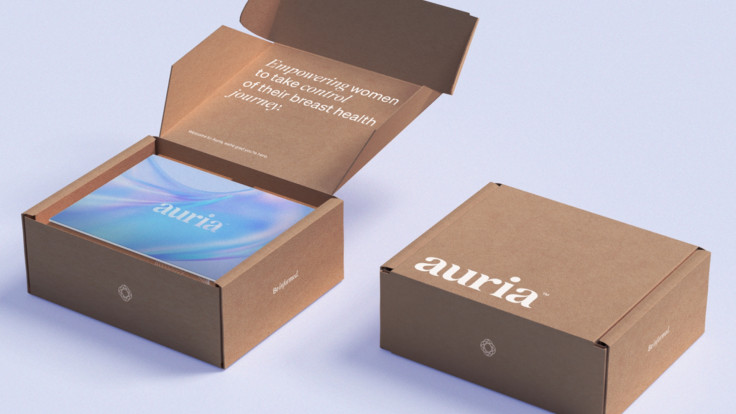Auria: Pioneering Tear-Based Cancer Screening for Breast Abnormalities
Breast cancer is one of the leading causes of cancer-related deaths among women worldwide. Early detection is crucial for effective treatment and improved survival rates. In a groundbreaking move, Namida, a tear-based cancer screening company, has recently launched Auria, a revolutionary test that utilizes proteomics, or protein biomarkers, to detect breast abnormalities that may indicate the presence of breast cancer. This cutting-edge technology has the potential to transform breast cancer screening and improve outcomes for countless women.

"This is not genetic testing," says Omid Moghadam, CEO and co-founder of Namida. "Many women are familiar with BRCA 1 and 2 gene mutations, which lead to an elevated risk of breast cancer. However, eighty-nine percent of breast cancers are not hereditary. Auria tests what is actually happening inside the body at that moment."
Tears, a biofluid with significant diagnostic potential, have long been overlooked in the field of cancer screening. However, recent advancements in tear analysis have opened up new possibilities for noninvasive and accurate detection of various diseases, including cancer. Namida has leveraged this potential to develop Auria, a state-of-the-art test specifically designed to identify breast abnormalities associated with breast cancer.
"If we look to ancient history, we will see the first case documented of breast cancer in the daughter of Cyrus the Great," says Moghadam. "The Greek surgeon felt the lump and removed the breast, and she was saved. This technique, feeling for lumps, remained the only screening tool for breast cancer until the 1980s, when mammography was invented. Forty years later, mammograms are still the top screening tool."
This reality poses several problems for women. First and foremost, mammography is an X-ray technique. In the words of Moghadam, "One percent of breast cancer is caused by overexposure to X-ray radiation. Mammography is the only form of screening that can actually give you cancer."
A second danger of mammography does not stem from the test itself, but the age of the tested patients. Current standards of care indicate mammography beginning at ages 45 through 50, yet a recent study stated that half of breast cancer deaths are women under 45 years old. Months ago, the US Preventative Task Force recommended the screening age be moved to 40, but Moghadam and his team feel even 40 is too old.
"Breast cancers in women ages 30 through 40 are aggressive and often fatal," says Moghadam. "Early detection is vital. So many younger women are contracting this and don't have a way to understand what is happening to their bodies until it's too late. To some, Auria offers peace of mind, and to others, it saves their life."
The sensitivity and usefulness of mammography can also be called into question, as this depends entirely on the physiology of the breast, which differs from woman to woman. Dense and fibrous breasts do not X-ray well; white calcifications get lost in a sea of white dense tissue readings. This truth brings light to an alarming reality: For fifty percent of women, X-rays are useless and often harmful, but they are forced to undergo this testing before receiving alternative imaging.
This is where Auria comes in. With this simple and cost-effective solution, women of all ages and breast types can screen for protein biomarkers associated with breast abnormalities without the use of radiation. This test does not require specialist training; it can be done in any lab, GP office, or even the comfort of one's home. This becomes a much simpler and quicker process, mirroring prostate cancer screening tests in men, which is done at the primary care level.
"Auria includes a clinical consultation with a breast health specialist to review results and answer questions, empowering women with information during the first line of screening," says Moghadam. "This changes the need and timing for the patient to establish a new relationship with a specialist, a process so lengthy and expensive that around fifty percent of women drop out." Moghadam continues, "Our vision with Auria has always been testing that is inexpensive and accessible."
The testing process itself is simple and noninvasive. Patients provide a tear sample, which is then analyzed using advanced proteomic techniques. The test accurately measures the levels of the identified biomarkers and compares them to established thresholds. Based on the results, Auria can classify the presence of breast abnormalities and provide valuable information for further diagnosis and treatment.
Auria has proven to be effective and disruptive in more ways than one, as evidenced by its recent Gold Edison Award for Innovation in Intelligent Diagnostics, winning over another popular cancer screening test, Galleri by GRAIL. Backed by physicians and more than a decade of research and clinical trials, Auria is being recognized for addressing the growing challenge of healthcare for women.
The launch of Auria marks a significant advancement in the field of breast cancer screening. By harnessing the power of tear-based testing and protein biomarker analysis, Namida has provided a breakthrough solution that offers noninvasive, early detection of breast abnormalities leading to breast cancer. Auria has the potential to revolutionize the way breast cancer is diagnosed, improving survival rates and empowering women to take control of their health.



























